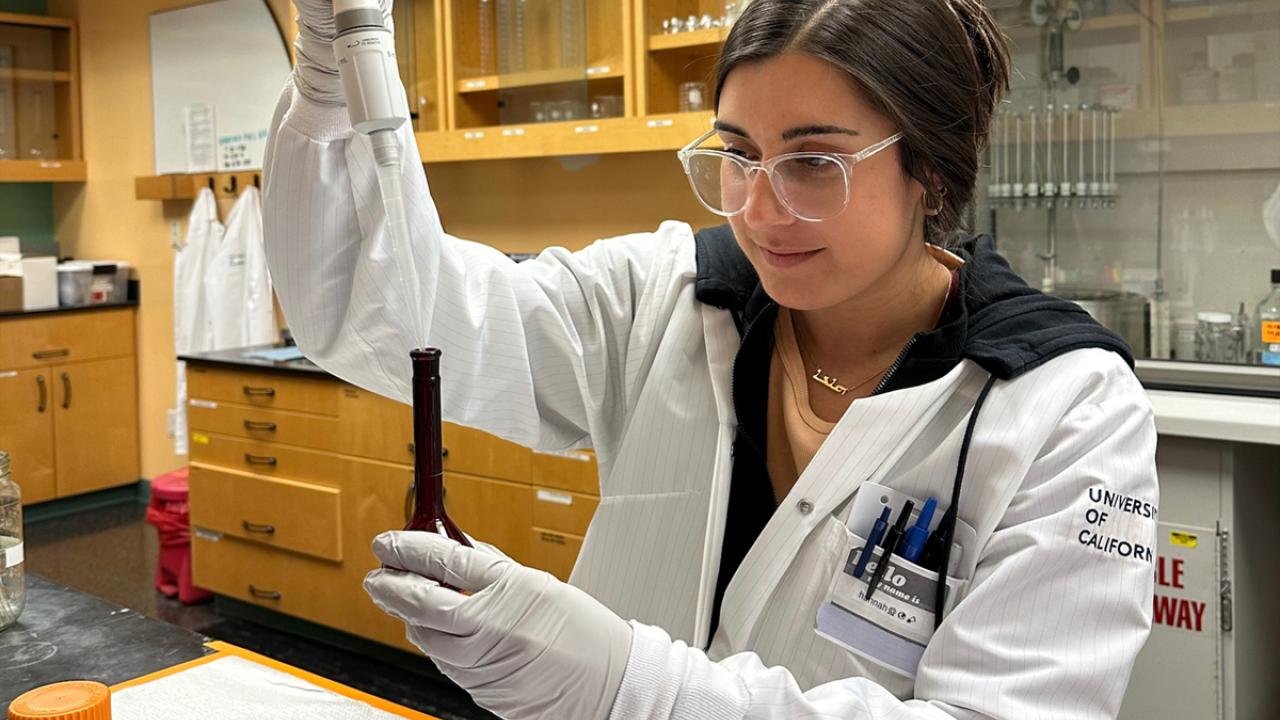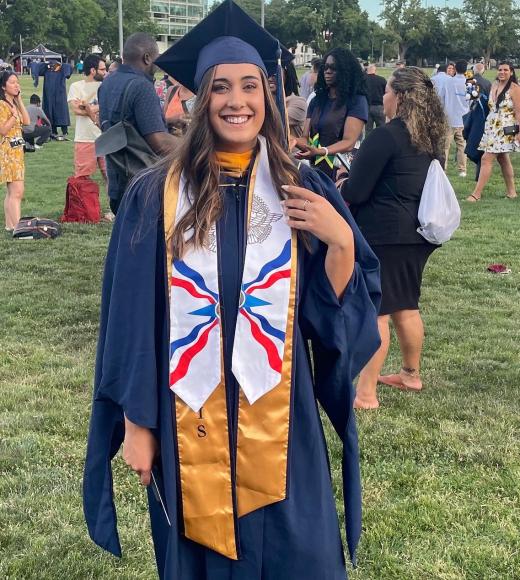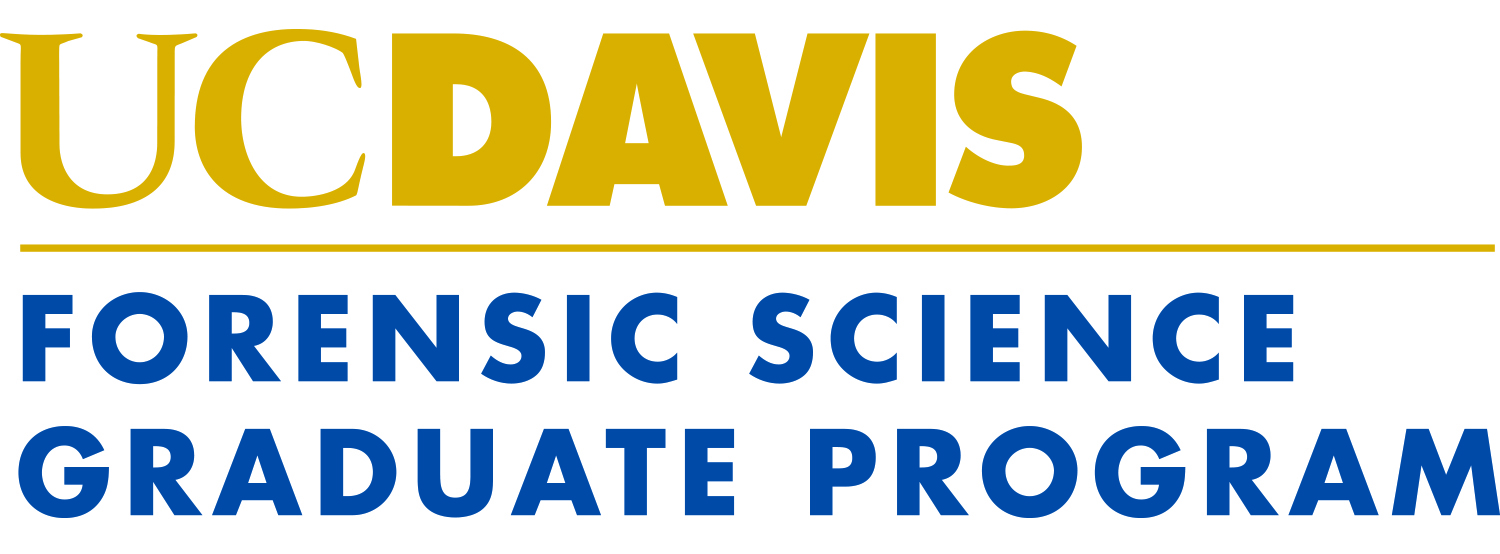
From a Forensic Science Student to a Successful Career in Toxicology
“I really don't think I would be in the position I am in now if I hadn’t had this program,” says Hannah David, a recent graduate of the UC Davis Forensic Science Master’s Program now working as an analytical chemist at the California Animal Health and Food Safety Laboratory at UC Davis. “The fact that I did my thesis research at this lab, then got a job, and now I've been promoted—this program has opened up doors for me.”
What motivated you to apply to UC Davis’ Forensic Science Graduate Program?
I was coming in right out of undergrad and I knew I wasn’t ready to get a job, I wanted to keep learning. In my senior year, my program director—a graduate of the UC Davis Master’s in Forensic Science—recommended I apply to the graduate program. I knew that getting a job was becoming harder in terms of the qualifications, so I figured a master's would set me apart and make me more competitive. I chose Davis because it's one of the best programs in the nation for forensics. I'm also from Modesto, and it just made sense that I spent all my undergrad in Arizona away from my family, and I got to come back home.
What were your goals going into the program?

My number one goal was to get in and get out in fewer than two years. I knew, especially with the master's thesis, it can be tough to try to find a project and finish it in a timely manner. So, that was my number-one goal. My other goal was to figure out what field I wanted to specialize in because there's quite a few. Even at the time, I didn't really know what I wanted to do. But I knew that this program was going show me a lot of different options.
What did you decide to specialize in and why are you passionate about it?
I kind of had an idea that I liked the chemistry side—the drug side—of forensics. Then once I got to the program and really understood toxicology and what that looks at, the field really resonated with me. The work was so fascinating because every day is different.
What's really cool about forensics is, it's all basically chemistry, except you're focusing on the evidence portion. The fields in forensics are interchangeable because all of the instrumentation is the same. Whether you're running a blood alcohol test or running for a pesticide screen, you're still going to use the same instrument and do the same type of methodology. It's just what we call a different matrix. So instead of doing human forensics, I actually work in the veterinary field in food, safety and animal health.
What was your most valuable takeaway from the program?
One of the biggest personal takeaways is being able to say that I have a master's from UC Davis. There is weight to that. It definitely opens up doors and it's a conversation starter.
Was there a particular professor or experience that stood out to you?
I loved all the professors in the program. They made the program so much better because you could tell how much they love their job, and they love teaching and wanting to invest in you.
During the Forensic Toxicology course, Professor Craig Triebold took all of us to his lab at the Sacramento crime lab, and we got to work on a project and spend time asking him questions. To see it in person really solidified for me what track I wanted to go down, and I knew it was going be toxicology. The fact that the program has somebody who is so knowledgeable and willing to invest in us and take us to their workplace was tremendous. It was a great experience.
Did you encounter any challenges during the program, and how did you overcome them?
One of the looming challenges for every student is your master's thesis project. I was worried about finding a project, but because the program has a seminar where you can hear about different research projects, I was able to reach out to somebody and then get on it quickly. Also, filing your thesis can be challenging. There's a lot of paperwork and you want to meet your deadlines, but the program staff guide you through the process and are so helpful. I felt very secure and strong about my submission after I had help from staff.
How did this program help you achieve your career goals?
It really is because of my master's, because of this program, that I've been able to get to where I am at a young age.
Considering a Career in Forensic Science?
Sign up for a free online information session to learn more about the program and get answers to your questions.
Would you recommend this program?
I would definitely recommend the program. I think it prepares you very well for any field. I work in veterinary toxicology, but it doesn't matter, because the program taught me how to work in various industries. The instrumentation is the same, the methodology is the same, good laboratory practice is the same. The program was a good foundation.
What advice do you have for others considering a career in forensic science?
Have an open mind. Be willing to try different things when it comes to your thesis project. I didn't even know veterinary toxicology existed, but because of the program, I realized there was a world out there that checks to make sure your food is safe and that your animals are OK. So, you can be dead set on forensics, but just have an open mind, because when you see these other fields, you're probably going to fall in love with them just as much.
